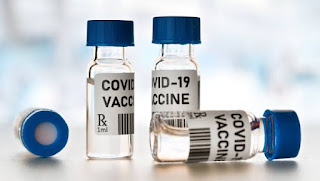COVID-19: Reasons for hope as new vaccines on stream
In this Special Feature , we discuss the recent progress of vaccine clinical trials and other ways in which researchers hope to get cure and prevention against the new corona virus.
What are the shining perspectives at this uncertain time?This is a question that researchers have been working to have answers for.
Last fortnight, in the Special Feature entitled COVID-19: Vaccine may be ready in a near future, they spoke about how researchers from the University of Oxford in the United Kingdom planned to commence clinical trials for a new vaccine against SARS-CoV-2, hoping to have it ready before 2020 come to an end.
In this Special Feature, it is explained how those plans have progressed and look at other steps that specialists have been taking to put an end to the pandemic.
On April 23, the University of Oxford announced the launch of the United Kingdom's first human trial for a SARS-CoV-2 vaccine.
The researchers hope that the trial will involve about 1,100 volunteers, half of whom will receive the actual experimental vaccine while the other half receive a vaccine for meningitis, used as controls. The participants will not know which of the two they have been given.
The experimental vaccine should stimulate the immune system to recognize and react to SARS-CoV-2’s spike protein, which makes it to enter and infect healthy cells.
A week ago, the first two volunteers received the inoculation. Both of them are scientists who were willing to contribute in some way to the efforts to fight the new corona virus.
One of the volunteers, Edward O’Neill, Ph.D., who works in the department of oncology at the University of Oxford, has said in an interview that taking part in the early stage of this clinical trial “just looks like the right thing to do, to ensure that we can combat this disease a little and get over it a lot quicker "
The other pioneering participant, Elisa Granato, Ph.D. — from the department of zoology at the university — has expressed a similar feeling saying, “I’m a scientist, so of course I want to try and support science […], and since I don’t study viruses, I felt a bit useless these days, so I felt this is a very easy way for me to joint the fight. "
A few days after getting the shot, Granato sent a public message reassuring everybody that she was doing well.
Prof. Sarah Gilbert, who is from the Jenner Institute for Vaccine Research in Oxford and one of the leader in the research leading to this trial, has said that she trusts that the vaccine will be a successful endeavor:
“Personally, I have a high degree of confidence in this vaccine.”
The researchers expect that it will take 2–6 months to confirm whether the vaccine is safe and effective as they hope that it will.
Recent reviews indicate that scientists around the world are currently experimenting with eight various types of possible vaccines for SARS-CoV-2 and that researchers are working on at least 90 vaccines right away.
The one that the University of Oxford researchers are trialling is protein-based. It contains an inactivated or weakened virus — in this case, an adenovirus — that acts as a “support” for the SARS-CoV-2 spike protein and had to stimulate a response from the immune system, “teaching” it to react to that protein.
Another type of vaccine uses inactivated versions of SARS-CoV-2 but has a similar end goal: to “teach” the immune system to identify and combat the virus.
On April 19, researchers associated with the Chinese biotechnology company Sinovac Biotech suggested
having successfully inoculated rhesus macaques with inactivated SARS-CoV-2, protecting them from the new corona virus, which,according to some scientists, could affect nonhuman species as well as humans.
In the preliminary study — the results of which they made available online in preprint form — the scientists tested their inactivated SARS-CoV-2 vaccine, which they call PiCoVacc, in a group of eight rhesus macaque monkeys.
This experiment followed previous tests in mice and rats. When it came to the rhesus macaques, the researchers selected them because, they say, this species can develop COVID-19-like symptoms following infection with SARS-CoV-2
At 7 days after infection with the virus, the rhesus macaques that had received the high doses of the vaccine showed the best results, the researchers stated. None of these animals had a predictable viral load in their pharynx or lungs at this point.
Commenting on these results, Prof. Florian Krammer from the Icahn School of Medicine at Mount Sinai in New York stated: “I like it. This is old school, but it might be effective "
“What I like most is that many vaccine producers, also in lower-middle-income countries, could make such a vaccine,” he concluded.











Comments
Post a Comment